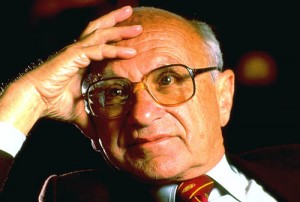This evening I showed up for my Marx in America seminar only to find two dedicated seminar members standing outside a locked building. One might think that of all times now might be a time that Tuzlans would be interested in Marx. But that would be to misunderstand the moment. If we have learned anything from the last few months, it is that our movements, however much they might be straining to break out of the chrysalis of their past, are fully contained within the conditions to which they owe their life. Unemployment, desperation, injustice do not on their own give rise to a response that leads to their undoing, their overcoming, as Marx might say. The fact that we need desperately to understand Marx, specially today, does not mean that we have either the time or the interest or the energy to do so. Marx? Today? In America? How? Why?
Nor is this necessarily an instance when, to paraphrase Adorno, the revolution lives on “because the moment to realize it was missed.” Part, perhaps the largest part, of any revolutionary moment is realizing just how it was missed, the specific ways that revolution was straining to reproduce the conditions of its own possibility and so straining as well against its own promise. Not mournfully. Not melancholically. But knowingly, recognizing the complexity of the moment.
The generation of Tuzlans who might have wanted to study Marx are the children of Tuzlans who suffered not only under war, but also under Fordism, the same Fordism that has left the lion’s share of my own generation in America dubious of anything that rings of hope or promise. That was our parent’s generation. That was the 1960s. And, as I pour over the data from the Tropes of War survey, I am struck at how similar the responses of these Bosnian and Herzegovinian temporary employees in Afghanistan and Iraq are to the responses of temporary workers who are not subjects of war and de-nationalization. Capitalism takes a hold of us even or specially when we identify its weak points; even or specially when we see what it is doing, not least to us. Tuzlans are not all that different in this respect from Berkeleyans.
Yet, whereas Berkeleyans believe that they are on top of the game — they are delivering and not receiving — Tuzlans believe that they will never be on top. Berkeleyans pour into a seminar on Marx, spilling out into the doorways, not because they are on the side of justice, but because they believe that mastering Marx’s interpretation places them in a better position to maintain their mastery of the world. They appreciate how Marx’s theories offer a more rigorous and satisfying explanation for their mastery than the Keynesian explanations offered elsewhere. And some, not many, may also see why their mastery is unsustainable.
Tuzlans may also perceive this dialectic. But they are not the masters in this story. They long for the old Keynesian days; the Fordist days, when a flat and a factory job were virtually guaranteed. And they recognize how this past is at odds with a rigorous reading of Marx. They realize that a rigorous reading of Marx is calling them to action. And that is not where they are. They are tired. They are depressed. They are without hope. And they are now stretched by commitments that they cannot possibly keep.
It is not that Capital is cynically counting on this exhaustion. Capital constitutes this exhaustion. It has constructed the very post-Fordist landscape under which compliance thrives; under which Bosnians pour eagerly, willingly into Afghanistan and Iraq but find it impossible to attend a seminar on Marx. This is the post-Fordist landscape; a landscape composed of exhausted, over-taxed, cynical, depressed workers whose schedules, outside commitments, and energy prohibit their coming to terms with the possibilities of their own moment.
Again, this is not altogether different from the post-Fordist landscape in the United States; but there students and workers see understanding Marx as a vehicle for further mastery. They want to grasp their moment not in order to liberate it, but in order to relieve it of whatever wealth it may contain.
Where Tuzla differs is that students and workers here might actually be able to do more with Marx than my Berkeley students who line up outside my office hour doors. Here there is actually the possibility of making something new. But, as Adorno has already said, the moment may already have been missed.
